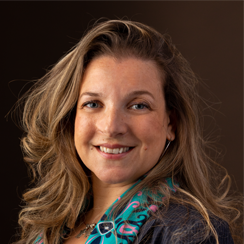
Samah Zeineb Gadhoum
Instructional Associate Professor
Biological and Environmental Science and Engineering Division
Teaching science is not just about transferring knowledge—it's about lighting a spark of curiosity that empowers future minds to explore the molecular code of life itself.
Biography
Professor Samah Zeineb Gadhoum is an Instructional Associate Professor with a strong background in cancer research. Since joining KAUST in 2010 as a senior research scientist, she was appointed as an instructor/lecturer of the Teaching BioLab in 2015 and as an Instructional Associate Professor in 2021.
Professor Gadhoum earned her Ph.D. in Molecular and Cellular Biology from Faculté René Descartes in Paris, France. She then completed a prestigious six-year postdoctoral fellowship at the Harvard Institutes of Medicine in Boston, Massachusetts, U.S.
Research Interests
Professor Gadhoum's research has focused extensively on cancer biology, with a particular emphasis on leukemic cells. Over the years, she has worked to uncover the molecular mechanisms behind the blockage of differentiation and the abnormal proliferation of these cells, aiming to identify key drivers of disease progression and potential therapeutic targets.
Education Profile
Post-doctoral Fellow and Advisor - Harvard Institute of Medicine, Brigham and Woman's Hospital/Harvard Medical School. (2004-2010)
Doctor of Philosophy in Cellular and Molecular Biology - Université Paris V - René Descartes, Paris, France and INSERM U268, Villejuif, France & INSERM EMI0003, Paris, France (Dec 2003)
Master in Cellular and Molecular Biology - Université Paris V - René Descartes, Paris, France and INSERM U268, Villejuif, France (1998)
Bachelor of Science in Biochemistry - Université Paris VI - Pierre and Marie Curie, Paris, France (1994-1997)

